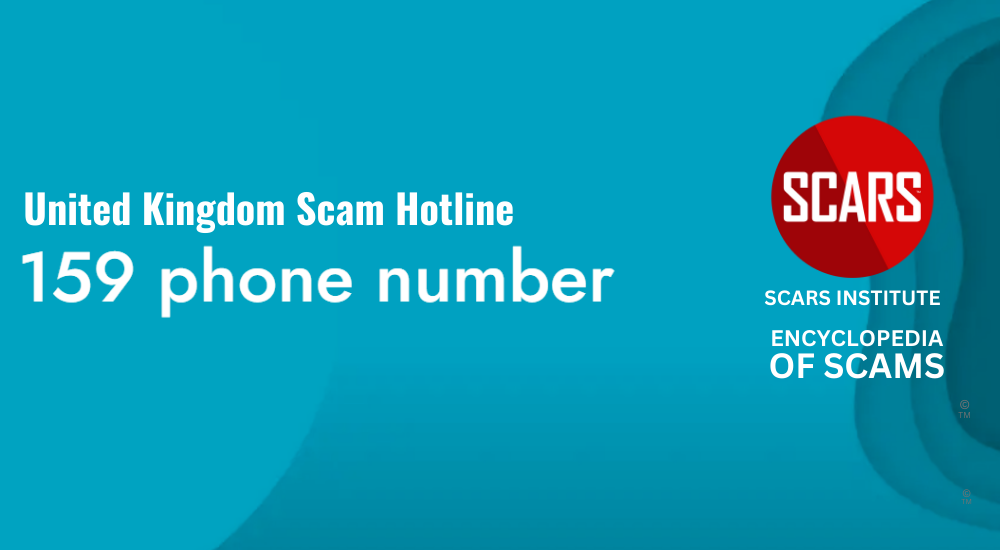
SCARS Institute’s Encyclopedia of Scams™ Published Continuously for 25 Years

SCARS™ Special Report: Does Being A Scam Victim Affect Your Credit Score?
Scams Involving Identity Theft Can Hamper Your Ability To Get Loans, But You Can Reduce Long-Term Impact
The following reflects the opinion of the author and is not intended to replace professional financial advice. If you have been the victim of a financial crime you are advised to seek the advice of a financial professional, and in many cases an attorney as well.
How Identity Theft Affects Your Credit Score
Identity theft can unfairly hamper its victims’ ability to get credit and loans – on top of other hardships. Unfortunately, far too many victims of social engineering scams give out their credit card or banking information. Many provide their full identities, such as social security numbers and more. This makes it easy for online scammers to also steal your identity to create new credit cards or other financial transactions in your name.
We have also seen a marked increase in the number of scam victims giving access to their bank accounts to their scammers. Scammers use this access to have other victims make transfer deposits into the victims’ accounts, that the scammer then withdraws via another transfer. However, they are also using these accounts to receive the monies from online loans in the victim’s name and deposited directly into the victim’s bank account.
The actions of scammers can affect your credit score in many ways. The damage can be temporarily devastating, but you can avoid serious long-term impact in some cases by quickly contacting your bank, your card issuers, and filing disputes with the major credit bureaus.
However, victims can see their credit score fall after banking or credit card transactions resulting from identity theft. Any time there is a collection activity against a victim it can damage their credit scores.
The average victim can spend a significant number of hours over months in an effort to repair the damage.
The drop in credit score can be significant – 80 to more than 100 point drop. For many consumers, losing more than 80 points could prevent them from getting credit cards and loans with favorable terms, or any credit at all.
Here’s how identity theft can affect your credit score, based on some of FICO’s key scoring components.
First Step: File a Police “Incident” Report
In the event that a scammer has used your information to create new credit cards, bank accounts, or obtained loans, it is absolutely essential that you file a criminal incident report with your local police.
Do not expect them to fix it or make it go away. They may be powerless to solve this, you will need to do almost all of the work, but a police report is required by the financial institutions to engage their fraud protections.
Remember that the financial institution is not your friend or on your side, they are on their side. That means they will hold you responsible to recover their money if they can. Filing the police report gives both of you the certainty that this was a crime and are able to respond appropriately.
Impact On Your Accounts
One of the great concerns that many have is protective actions taken by a bank or creditor. This is very real and you need to protect yourself from it.
When a significant case of fraud is reported to your bank, they can choose to freeze your accounts until a full investigation is completed. You are advised to remove your money from the bank and either close the account or freeze it yourself so you maintain control. Move your money or direct deposits to another new bank so you have continuing access to your money. If you receive a pension or social security, or direct salary deposit payments open a new account at a new bank immediately and change where your deposits are made, but wait on freezing your old account until you know the deposits are coming through in the new bank. It can take up to 60 days fro some institutions to make an account change for direct deposits.
HOW IT CAN IMPACT YOUR CREDIT
Payment History: The Identity Thief Isn’t ‘Good For It’
If a scammer or an identity thief opens a credit card or takes out a loan using your personal information, chances are he’s never going to pay the balance. Credit card issuers typically report late payments to credit bureaus once they’re 60 days past due. Payment history accounts for 35 percent of your credit score, and a single missed payment can cause it to drop by as many as 110 points.
According to CreditCards.com: It takes time to repair credit score damage from fraud, even after you’ve reported it to the card issuers and closed the cards, or bank accounts, and reported it to the police.
“Building credit takes time no matter the circumstances, but the amount of time it takes to do so varies,” said Heather Battison, vice president of TransUnion. “That’s also true for repairing credit after identity theft. Each situation is different. No matter what, it’s important to respond quickly if you believe your identity has been compromised.”
“Building credit takes time, no matter the circumstances, but the amount of time it takes to do so varies. That’s also true for repairing credit after identity theft.”Battison said TransUnion typically resolves disputes within 45 days, if the consumer provides proper documentation. That can include a police report and a letter from the creditor stating how the account should be corrected, among other documents.
Failure to act will worsen the damage. If a thief rings up a high balance in your name and doesn’t pay, the unpaid debt will eventually be turned over to a collection agency. That’s another derogatory credit report item that can cost your credit score over 100 points. If that’s not enough, lenders can also pursue legal action against you for unpaid debts. Failing to file a police report can make it appear that it was not a real crime and that you are just attempting to avoid payment of a debt.
“If someone is unaware of this activity and these debts go unpaid – which they invariably do – the lender might sue the person for the balance they \u2018owe,’” Battison said. “People can fight these types of lawsuits and they may win if they can establish that they’re a victim of identity theft, but the battle will run up legal costs, not to mention the time it takes to tend to the matter.”
Battison also noted that a thief can use your personal information to drain your checking account, which can then result in missed payments on your legitimate credit accounts.
Credit Utilization: Take It To The Limit
If a scammer or identity thief applies for a credit card in your name and gets it, the odds of the card then being maxed out are high. FICO estimates that charging up to your card’s limit can lower your score by as many as 45 points.
Identity theft expert Rob Douglas said thieves tend to ring up high balances on fraudulent credit cards right away because they know the fraud will eventually be detected.
“The odds are that the card’s going to get closed down before they’ve done much, so they want to maximize it as quickly as possible,” Douglas said.
Length Of Credit History: Card Binge Shortens Your ‘Life Span’
If a scammer or identity thief obtains your personal information and applies for five different credit cards in a span of a few weeks or months. If all those applications are approved, this significantly decreases the length of your credit history, which accounts for 15 percent or more of your credit score.
It may not be such a problem if you have several card or loan accounts that are 8 to 10 years old on average. But suppose your credit history consists of one card that’s 5 years old and another that’s 2 years old. If five new cards are added to your account at once, your average age of all accounts drops from 3.5 years to 1 year.
Your score should return to normal in a short amount of time if you report the cards as fraudulent and file disputes with credit bureaus right away.
Douglas said sophisticated credit card fraud rings usually don’t open multiple credit lines in one victim’s name because it can arouse suspicion. But there are exceptions. In June 2017, a Washington woman was arrested for an identity theft spree that spanned two counties. One of the woman’s victims said in court that nine credit cards had been opened in his name and that his “perfect” credit score was ruined.
New Credit: Multiple Inquiries Add Up
A thief can only obtain so many credit accounts in your name – eventually, issuers may balk at the sight of so many new accounts and start denying further applications. But that may not stop the thief from trying, and every credit application generates a hard inquiry on your credit report.
Hard inquiries typically ding your credit score by about five points, but an avalanche of applications can send your score into a freefall. Hard inquiries not related to fraud typically stay on your credit report for two years, but fraudulent ones can be removed sooner by filing disputes with the credit bureaus, Battison said.
It’S Not The Worst Thing That Can Happen, But …
Credit score damage isn’t the worst possible outcome of identity theft. As noted by the Federal Trade Commission, a thief can file a tax return in your name and take your refund or even give your name to the police while being arrested. But a credit score collapse – whatever the cause – can hurt your ability to borrow in the short term. And it takes time and effort to reverse the impact of identity theft.
“Identity theft can have a lasting effect if it’s not addressed quickly and properly,” Battison said. “That’s why we always recommend customers take preventive measures to protect their credit.”
By taking the right steps to protect yourself – by checking your credit report regularly and securing your personal information, among others – you can focus on maintaining and building excellent credit without fear of sabotage.
WHAT TO DO WHEN YOUR IDENTITY HAS BEEN STOLEN
If you’ve been targeted by an identity thief, it’s critical to take the following steps as quickly as possible to mitigate the damage.
- Contact the card issuer. If you spot a credit card account in your name on your credit report that you didn’t apply for, call the bank or issuer’s fraud department and send an additional notification in writing.
- Place a fraud alert on your account. Contact Equifax, Experian or TransUnion and place a fraud alert » on your report. You only have to contact one of them – the bureau you call is required to notify the others, and they will all be alerted within 24 hours.
- File a dispute with a credit bureau. Notify one of the credit reporting agencies in writing of inaccurate information that appears on your credit report. Explain why it’s inaccurate and request that it be removed. If the information is proved to be inaccurate, all three credit bureaus must correct it in your file.
- Call the police. Contact your local authorities and obtain a copy of the police report. The police report allows you to prove a crime has been committed when you’re dealing with creditors and filing identity theft reports.
- Change your passwords. Create new passwords for every online account that contains your personal information. Start with your bank and credit card accounts and then change passwords for other accounts that involve money transactions (i.e., utility providers, Netflix, PayPal).
Source: CreditCards.com – visit their website for more information about credit card fraud protections and about other credit card needs
PLEASE SHARE OUR ARTICLES WITH YOUR CONTACTS
HELP OTHERS STAY SAFE ONLINE
SCARS™ Team
A SCARS Division
Miami Florida U.S.A.
TAGS: SCARS, Important Article, Information About Scams, Anti-Scam, SCARS™ Special Report, Being A Scam Victim, Affect Your Credit Score, Scams Involving Identity Theft, Hamper Your Ability To Get Loans, Reduce Long-Term Impact, How Identity Theft Affects Your Credit Score, Romance Scam Victims, Personal Information, Identity Theft, Access To Your Bank Account
The Latest SCARS|RSN Posts
FIND MORE SCAM NEWS
«SCAMCRIME.COM»
CHAT WITH SCARS™
«CLICK HERE»
END
MORE INFORMATION
– – –
Tell us about your experiences with Romance Scammers in our
« Scams Discussion Forum on Facebook »
– – –
FAQ: How Do You Properly Report Scammers?
It is essential that law enforcement knows about scams & scammers, even though there is nothing (in most cases) that they can do.
Always report scams involving money lost or where you received money to:
- Local Police – ask them to take an “informational” police report – say you need it for your insurance
- U.S. State Police (if you live in the U.S.) – they will take the matter more seriously and provide you with more help than local police
- Your National Police or FBI « www.IC3.gov »
- The SCARS|CDN™ Cybercriminal Data Network – Worldwide Reporting Network « HERE » or on « www.Anyscam.com »
This helps your government understand the problem, and allows law enforcement to add scammers on watch lists worldwide.
– – –
Visit our NEW Main SCARS Facebook page for much more information about scams and online crime: « www.facebook.com/SCARS.News.And.Information »
To learn more about SCARS visit « www.AgainstScams.org »
Please be sure to report all scammers
« HERE » or on « www.Anyscam.com »
Legal Notices:
All original content is Copyright © 1991 – 2020 SCARS All Rights Reserved Worldwide & Webwide. Third-party copyrights acknowledge.
SCARS, RSN, Romance Scams Now, SCARS|WORLDWIDE, SCARS|GLOBAL, SCARS, Society of Citizens Against Relationship Scams, Society of Citizens Against Romance Scams, SCARS|ANYSCAM, Project Anyscam, Anyscam, SCARS|GOFCH, GOFCH, SCARS|CHINA, SCARS|CDN, SCARS|UK, SCARS Cybercriminal Data Network, Cobalt Alert, Scam Victims Support Group, are all trademarks of Society of Citizens Against Relationship Scams Incorporated.
Contact the law firm for the Society of Citizens Against Relationship Scams Incorporated by email at legal@AgainstScams.org
-/ 30 /-
What do you think about this?
Please share your thoughts in a comment below!
Table of Contents
LEAVE A COMMENT?
Recent Comments
On Other Articles
- Arwyn Lautenschlager on Love Bombing And How Romance Scam Victims Are Forced To Feel: “I was love bombed to the point that I would do just about anything for the scammer(s). I was told…” Feb 11, 14:24
- on Dani Daniels (Kira Lee Orsag): Another Scammer’s Favorite: “You provide a valuable service! I wish more people knew about it!” Feb 10, 15:05
- on Danielle Delaunay/Danielle Genevieve – Stolen Identity/Stolen Photos – Impersonation Victim UPDATED 2024: “We highly recommend that you simply turn away form the scam and scammers, and focus on the development of a…” Feb 4, 19:47
- on The Art Of Deception: The Fundamental Principals Of Successful Deceptions – 2024: “I experienced many of the deceptive tactics that romance scammers use. I was told various stories of hardship and why…” Feb 4, 15:27
- on Danielle Delaunay/Danielle Genevieve – Stolen Identity/Stolen Photos – Impersonation Victim UPDATED 2024: “Yes, I’m in that exact situation also. “Danielle” has seriously scammed me for 3 years now. “She” (he) doesn’t know…” Feb 4, 14:58
- on An Essay on Justice and Money Recovery – 2026: “you are so right I accidentally clicked on online justice I signed an agreement for 12k upfront but cd only…” Feb 3, 08:16
- on The SCARS Institute Top 50 Celebrity Impersonation Scams – 2025: “Quora has had visits from scammers pretending to be Keanu Reeves and Paul McCartney in 2025 and 2026.” Jan 27, 17:45
- on Scam Victims Should Limit Their Exposure To Scam News & Scammer Photos: “I used to look at scammers photos all the time; however, I don’t feel the need to do it anymore.…” Jan 26, 23:19
- on After A Scam, No One Can Tell You How You Will React: “This article was very informative, my scams happened 5 years ago; however, l do remember several of those emotions and/or…” Jan 23, 17:17
- on Situational Awareness and How Trauma Makes Scam Victims Less Safe – 2024: “I need to be more observant and I am practicing situational awareness. I’m saving this article to remind me of…” Jan 21, 22:55
ARTICLE META
Important Information for New Scam Victims
- Please visit www.ScamVictimsSupport.org – a SCARS Website for New Scam Victims & Sextortion Victims
- Enroll in FREE SCARS Scam Survivor’s School now at www.SCARSeducation.org
- Please visit www.ScamPsychology.org – to more fully understand the psychological concepts involved in scams and scam victim recovery
If you are looking for local trauma counselors please visit counseling.AgainstScams.org or join SCARS for our counseling/therapy benefit: membership.AgainstScams.org
If you need to speak with someone now, you can dial 988 or find phone numbers for crisis hotlines all around the world here: www.opencounseling.com/suicide-hotlines
A Note About Labeling!
We often use the term ‘scam victim’ in our articles, but this is a convenience to help those searching for information in search engines like Google. It is just a convenience and has no deeper meaning. If you have come through such an experience, YOU are a Survivor! It was not your fault. You are not alone! Axios!
A Question of Trust
At the SCARS Institute, we invite you to do your own research on the topics we speak about and publish, Our team investigates the subject being discussed, especially when it comes to understanding the scam victims-survivors experience. You can do Google searches but in many cases, you will have to wade through scientific papers and studies. However, remember that biases and perspectives matter and influence the outcome. Regardless, we encourage you to explore these topics as thoroughly as you can for your own awareness.
Statement About Victim Blaming
SCARS Institute articles examine different aspects of the scam victim experience, as well as those who may have been secondary victims. This work focuses on understanding victimization through the science of victimology, including common psychological and behavioral responses. The purpose is to help victims and survivors understand why these crimes occurred, reduce shame and self-blame, strengthen recovery programs and victim opportunities, and lower the risk of future victimization.
At times, these discussions may sound uncomfortable, overwhelming, or may be mistaken for blame. They are not. Scam victims are never blamed. Our goal is to explain the mechanisms of deception and the human responses that scammers exploit, and the processes that occur after the scam ends, so victims can better understand what happened to them and why it felt convincing at the time, and what the path looks like going forward.
Articles that address the psychology, neurology, physiology, and other characteristics of scams and the victim experience recognize that all people share cognitive and emotional traits that can be manipulated under the right conditions. These characteristics are not flaws. They are normal human functions that criminals deliberately exploit. Victims typically have little awareness of these mechanisms while a scam is unfolding and a very limited ability to control them. Awareness often comes only after the harm has occurred.
By explaining these processes, these articles help victims make sense of their experiences, understand common post-scam reactions, and identify ways to protect themselves moving forward. This knowledge supports recovery by replacing confusion and self-blame with clarity, context, and self-compassion.
Additional educational material on these topics is available at ScamPsychology.org – ScamsNOW.com and other SCARS Institute websites.
Psychology Disclaimer:
All articles about psychology and the human brain on this website are for information & education only
The information provided in this article is intended for educational and self-help purposes only and should not be construed as a substitute for professional therapy or counseling.
While any self-help techniques outlined herein may be beneficial for scam victims seeking to recover from their experience and move towards recovery, it is important to consult with a qualified mental health professional before initiating any course of action. Each individual’s experience and needs are unique, and what works for one person may not be suitable for another.
Additionally, any approach may not be appropriate for individuals with certain pre-existing mental health conditions or trauma histories. It is advisable to seek guidance from a licensed therapist or counselor who can provide personalized support, guidance, and treatment tailored to your specific needs.
If you are experiencing significant distress or emotional difficulties related to a scam or other traumatic event, please consult your doctor or mental health provider for appropriate care and support.
Also read our SCARS Institute Statement about Professional Care for Scam Victims – click here to go to our ScamsNOW.com website.

























Thank you for your comment. You may receive an email to follow up. We never share your data with marketers.